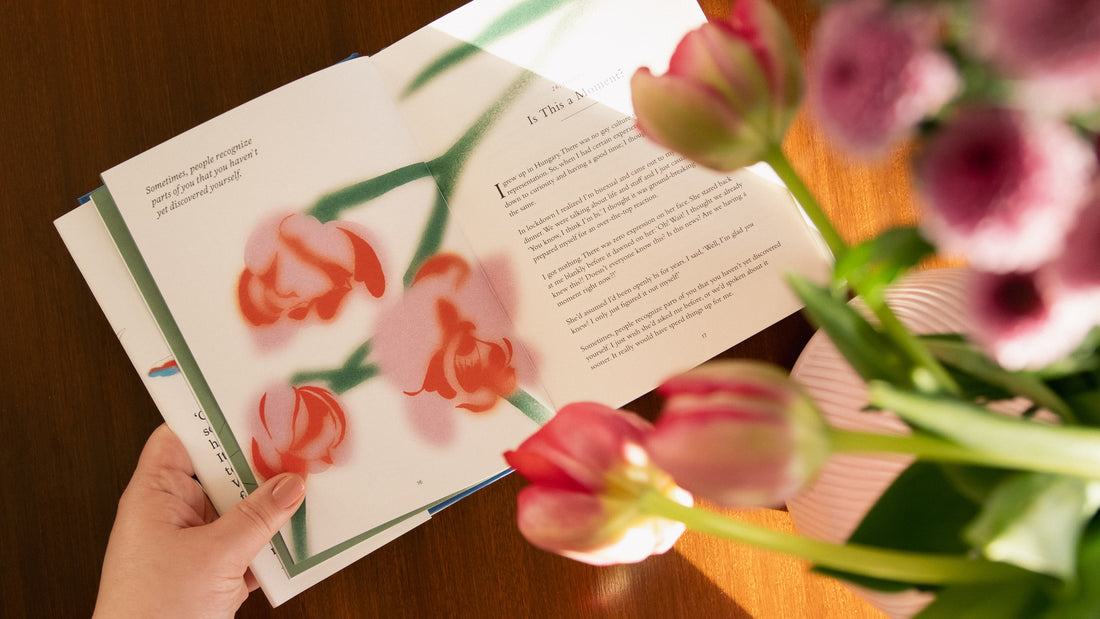Coming out isn’t something that happens just once. It’s something I have to do on a daily basis. When I meet someone for the first time, when I start a new job, when I’m at the hairdresser’s in the middle of a blow-dry. Being gay sucks if you’re a private person. Only the other day, I was in an Uber and the driver asked if I was on the way to meet my boyfriend. I didn’t correct him. You never know what reaction you might get and I prefer not to chance it. I’m a private person, my sexuality is a very small part of me and choosing not to shout it from the rooftops doesn’t mean I’m any less proud. It’s OK not to want to share it with every stranger.
My coming-out process spanned 10 years; it was a lonely and confusing time. I had dated men, but it never felt quite right. With every hand I held, I felt as though I was performing the role of the person I wished I was. Every rom-com was a slap in the face, a reminder of a life I’d never have. The fact that I wasn’t straight, but so badly wanted to be, was a painful realization to come to terms with.
Looking back, I’ve known from as young as seven. I remember feeling very protective of my female friends in primary school, supervising them as they climbed the monkey bars or dived head first into the swimming pool. At age eight, my first crush was my English teacher. One year I wrote her a Valentine’s card and left it on her desk. I remember the nerves and excitement. I’ll never forget going to the cinema when I was 11 and seeing Angelina Jolie in Lara Croft: Tomb Raider (2001); I didn’t understand why at the time, but I was totally in awe of her. As a teen, I was never into the Backstreet Boys or NSYNC like so many of my friends. I found boys uninteresting. However, hours were spent obsessing over Britney and The Spice Girls.
I spent four confusing years at university, trying to figure out who I was. Hearts got broken along the way. As I moved from one person to the next, I left behind a path of destruction. It was selfish to have experimented with my feelings at the expense of others, but I wasn’t aware I was doing it at the time. For years I convinced myself that I hadn’t met the right guy. My indifference towards men was interpreted as playing hard to get or being a ‘challenge’. For some time, I thought that might be the case.
When I eventually figured out who I was, I spent the best part of a year psyching myself up to tell my parents. If anything, I was biding time as I unravelled my own inner conflict. I had many sleepless nights full of confusion and anxiety. It wasn’t so much that I was concerned about their reaction; it was the pressure of finding an appropriate time to sit down and tell them. The more I debated it, the more I exacerbated the issue, catastrophizing it into something far bigger than it was. In telling them there was no going back; it marked the beginning of a new life, and that scared me.
I didn’t want my parents to think I’d been lying to them or going out of my way to deceive them. I was tired of the same questions: ‘Do you have a boyfriend?’ or ‘Are you dating?’ I was tired of giving the same excuses: ‘I’m too busy’, ‘There’s no one I’m interested in’ or ‘I’m focused on my studies.’ With each lie, I felt like a fraud. Even worse, I think they saw right through them. As the years went by and I remained boyfriendless, it became a predictable exchange we’d act out. Whatever the circumstances, coming out is almost always difficult. However, this book has often reminded me that coming out can be a luxury, something many will never have the opportunity to do.
– Extract from Countless Sleepless Nights by Carina Maggar

